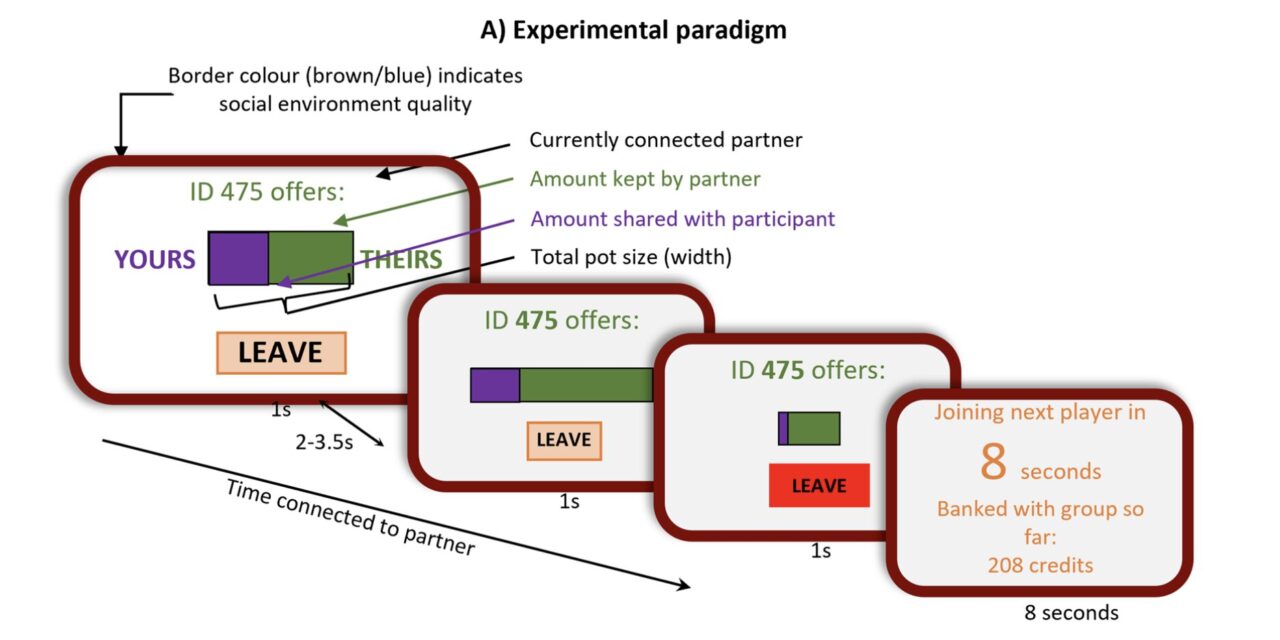Psychology researchers and neuroscientists have long sought to unravel the complexities of social interactions, yet many fundamental questions remain unanswered. A recent study by researchers from the University of Birmingham and the University of Oxford delves into one such question: What determines when humans decide to end or leave a social interaction?
Published in Communications Psychology, the study proposes that the decision to leave social interactions is largely influenced by “social environment-based opportunity costs.” This concept, borrowed from animal foraging behavior research, suggests that individuals assess the benefits of staying in a current social interaction versus the potential gains from engaging elsewhere.
Matthew Apps, co-author of the study, elaborates on the motivation behind their research: “We were intrigued by the scarcity of studies exploring the decision-making process behind leaving social interactions. While we understand much about how people engage in social interactions, we know less about the factors influencing when they choose to end them.”
Drawing parallels with animal foraging strategies, where creatures evaluate the average return from their current location against potential gains elsewhere, the researchers hypothesized that humans might similarly weigh the benefits of continuing a current social interaction against the potential rewards of engaging with others.
The study not only explores these decision-making processes but also considers implications for mental health: “We were curious if individuals experiencing depression or loneliness might differ in how they make these decisions compared to others,” Apps added. “Understanding these dynamics could offer insights into how social interaction patterns may vary among different groups.”
Key findings from the research highlight: Individuals are more likely to leave ongoing social interactions when they perceive higher potential benefits from alternative social engagements. This behavior suggests a strategic approach to social interaction management influenced by perceived opportunity costs.
Future research directions include investigating how individual differences, such as personality traits or mental health conditions, influence these decision-making processes. Such insights could contribute to a deeper understanding of social dynamics and potentially inform interventions aimed at enhancing social well-being.
The study, titled “Social environment-based opportunity costs dictate when people leave social interactions,” underscores the interdisciplinary nature of contemporary psychological research and its potential to illuminate complex human behaviors.
For more details, the full paper can be accessed in Communications Psychology (2024), authored by Anthony S. Gabay et al.












